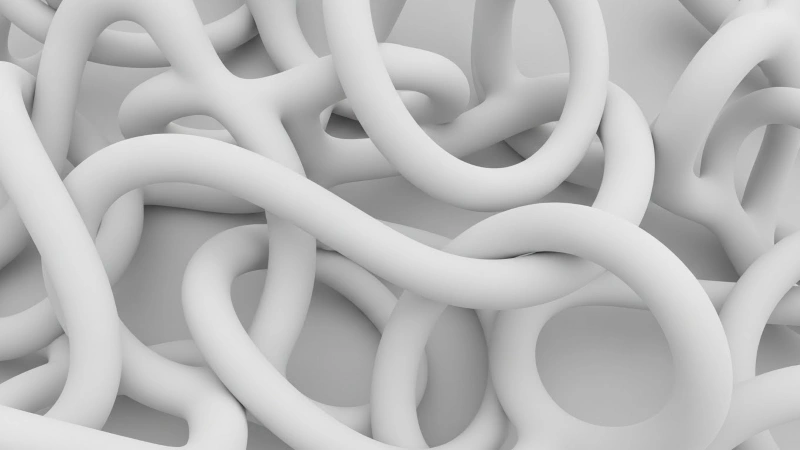
As HVAC systems grow more complex and energy regulations tighten, thermal engineers have become essential to project success. These specialists bring deep expertise in heat transfer, fluid dynamics, and simulation tools to ensure your HVAC system is optimized for performance, comfort, and compliance from the start.
Whether you’re launching a new build or upgrading an outdated system, involving a thermal engineer early helps avoid costly mistakes, improves energy efficiency, and ensures your design meets today’s high standards. This guide breaks down what thermal engineers do, when you need one, and how they drive smarter, more sustainable HVAC solutions.
As HVAC systems become more advanced and efficiency standards continue to evolve, the contribution of a thermal engineer HVAC has become indispensable. These professionals ensure that HVAC systems function with precision, comfort, and long-term reliability. They are behind the science that keeps indoor environments livable and sustainable.
Thermal engineers provide a unique analytical layer to HVAC design by applying principles of heat transfer and fluid dynamics. They calculate thermal loads, evaluate insulation strategies, and identify areas for optimization before any hardware is installed. Their insights help reduce system waste and support precise climate control.
When thermal engineers are not included in the early planning stages, the result can be costly inefficiencies. Undersized or oversized equipment, poor zoning, and ventilation imbalances are common issues. By integrating thermal design expertise early, building performance is enhanced across the board.
A thermal engineer HVAC, specializes in analyzing and optimizing how heat moves through a building. Their focus includes insulation performance, heating/cooling loads, and system behavior under different conditions. This scientific approach ensures that HVAC designs are both effective and compliant.
These engineers are deeply involved in the technical design phase. Their tasks range from simulating environmental conditions to selecting system components based on precise data. Their work supports better indoor air quality and reduced operating costs. They bring a level of rigor that sets them apart from traditional HVAC designers.
ASHRAE’s standards and guidelines serve as the foundation for thermal engineers when designing for safety, ventilation, and efficiency.

A thermal engineer typically has a degree in mechanical engineering, thermal sciences, or a related field. Many also hold specialized HVAC certifications and have experience working with green building frameworks.
They use a variety of simulation tools to model energy use and comfort. These include:
These platforms allow engineers to forecast how systems will perform in real-world conditions. In addition to ASHRAE guidelines, thermal engineers must stay updated on local codes, energy efficiency standards, and international certifications like LEED or BREEAM.
The U.S. Department of Energy also provides valuable insights into HVAC system efficiency through its research review on residential installation practices, which supports thermal engineers in making data-informed decisions.
A thermal engineer is essential during specific project phases and conditions where HVAC precision matters most. For any new development, hiring a thermal engineer ensures that HVAC systems are scalable, efficient, and optimized for local climate conditions. Their involvement from concept to completion helps avoid costly adjustments later.

In large residential or commercial buildings, thermal engineers are instrumental in sizing systems and zoning spaces effectively. Their calculations ensure that HVAC units aren’t overworked or oversized, which reduces long-term energy waste and system degradation.
When upgrading outdated HVAC systems, thermal engineers assess current performance and suggest new solutions that save energy. Their evaluations are grounded in detailed simulation, helping guide decisions about equipment replacement, ductwork changes, or control system upgrades.
Whether you’re aiming for LEED, WELL, or another credential, a thermal engineer’s documentation and modeling are vital for compliance. They often lead the simulation work required for certification and provide proof of energy performance improvements.
Hiring a thermal engineer has significant benefits that impact every stage of an HVAC project. Getting load calculations wrong can result in oversized systems that waste energy. Thermal engineers use dynamic models to calculate the exact heating and cooling needs, which improves efficiency.
By fine-tuning airflow and ventilation, thermal engineers ensure that spaces are neither too humid nor too dry. This makes them key to occupant health and comfort.
Efficient HVAC design can reduce lifetime operating costs significantly. From equipment sizing to zoning strategies, thermal engineers directly influence how much energy a system consumes.
Thermal engineers document and verify that your system meets or exceeds local and international energy codes. Their expertise is often required for government rebates or sustainability grants.
Summary of Benefits:
In fact, the role of thermal engineers often overlaps with other HVAC specialists, especially in large-scale or sustainability-focused projects. For a deeper look at how various HVAC roles contribute to energy-efficient designs, this detailed article about how HVAC design engineers are shaping sustainable building design explores broader HVAC engineering strategies that complement thermal analysis. Together, these professionals ensure that every system—from ventilation to heating and cooling—works in harmony.
Hiring the right professional requires evaluating technical skills and collaboration abilities. Make sure your thermal engineer has a degree in a relevant discipline and can show completed projects with measurable performance outcomes.
Candidates should be proficient in tools like EnergyPlus, IES VE, OpenStudio, and CFD platforms, and be comfortable integrating HVAC solutions into the broader building design. Thermal engineers often coordinate closely with architects and remote engineers to optimize building systems and ensure compliance. Look for professionals who are comfortable working in a multidisciplinary environment and can present their findings clearly.
Evaluation Tips:
Simulation is where thermal engineers shine. Using digital models, they test the effectiveness of HVAC systems under different weather, occupancy, and load conditions. This method allows for detailed adjustments and performance optimization without the risk or cost of real-world trial and error.
Some of the most widely used platforms include:
These tools provide granular data that helps eliminate assumptions during HVAC design. Simulation platforms also allow real-time iterations, ensuring systems evolve with design changes.
As sustainability expectations grow, HVAC systems must evolve to be smarter, cleaner, and more responsive to occupant needs. Thermal engineers are leading the charge in this shift.
Innovations reshaping thermal engineering include:
Engineers are also working with real-time performance monitoring, predictive maintenance powered by AI, and adaptive HVAC systems for hybrid buildings.
A thermal engineer in HVAC delivers critical value at every stage of a building project. From design and compliance to comfort and efficiency, their insights drive more intelligent decisions and long-term benefits. Their ability to simulate, analyze, and improve system performance ensures that HVAC investments are future-ready, code-compliant, and built to last.
Whether you’re constructing a new facility or optimizing an existing one, involving a thermal engineer is not just smart—it’s essential.
If you’re looking for skilled professionals to support your projects, you can explore engineering talent services tailored to your needs.
About the Author
With a deep understanding of how HVAC systems impact building efficiency and comfort, his work with UpTalent has focused on helping companies access top-tier thermal engineering talent. Through expert simulation and system design, he enables smarter HVAC solutions for future-ready buildings.
Expertise:
Explore these related articles to dive deeper into the topic and discover more insights.

How a Digital Marketing Strategist Helps You Build Effective Campaigns

5 Key Benefits of SEO Outsourcing for Digital Marketing Agencies

The Importance of a Payroll Specialist in Preventing Payroll Errors